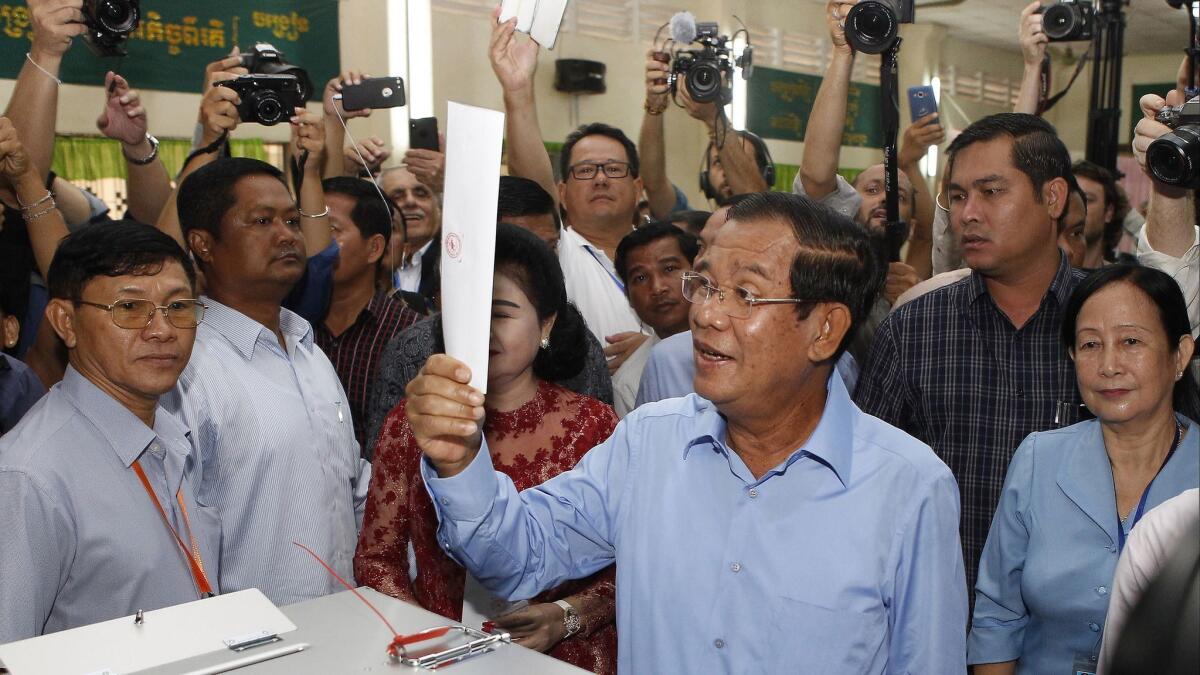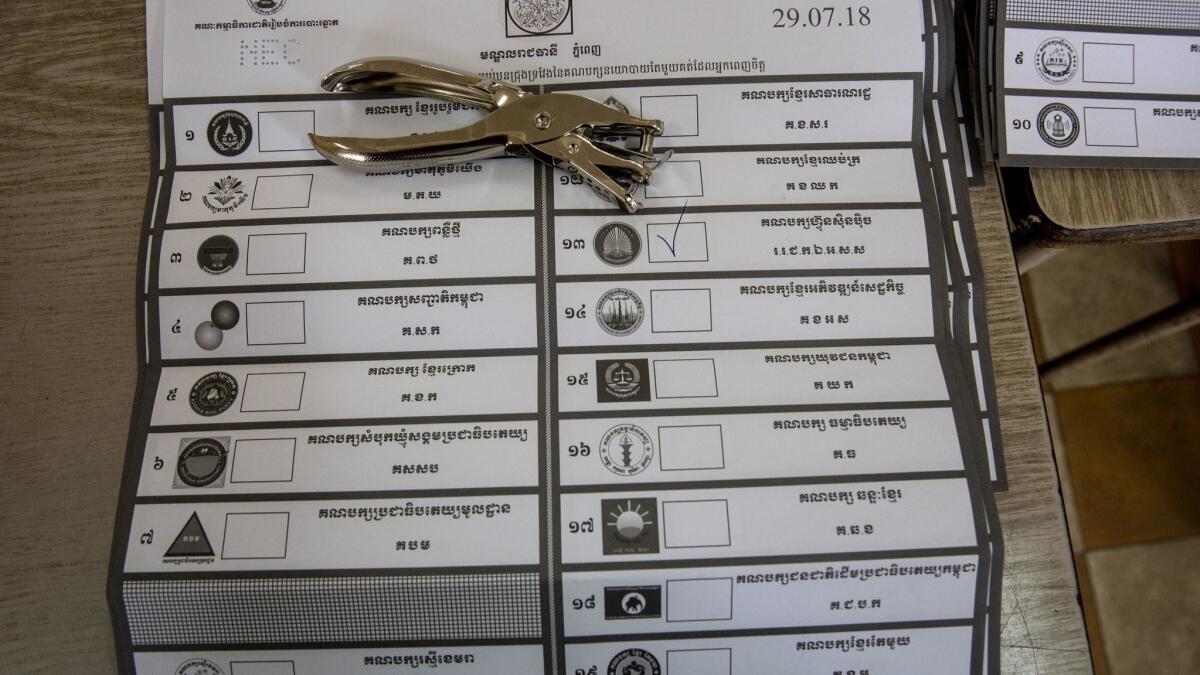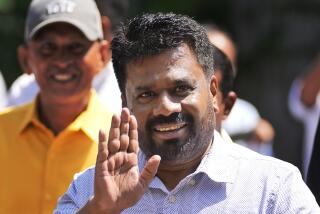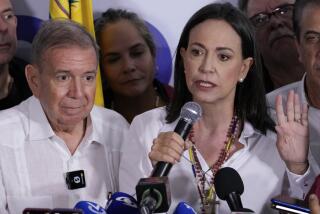Landslide win for Cambodian strongman in one-horse election

- Share via
Reporting from PHNOM PENH, Cambodia — Cambodia’s authoritarian prime minister, Hun Sen, secured an easy victory in the country’s election Sunday, with preliminary results indicating his ruling party won an overwhelming majority in a contest that has been condemned as a “sham.”
With the country’s main opposition party banned from competing and only insignificant political parties to contend with, it was estimated that Hun Sen’s Cambodian People’s Party, or CPP, won more than 75% of votes across the country, based on figures published by national broadcaster TVK.
“By the result of each polling station, we can say that the CPP is the winner,” National Election Committee spokesman Hang Puthea said. Official results are not expected to be released until next month.
According to the National Election Committee, about 6.8 million people cast a ballot — down from about 7.1 million in last July’s local election — or 82% of registered voters.

A spokesman for the Cambodian People’s Party, Sok Eysan, said he was “very optimistic” that the party had won “gloriously, extraordinarily.”
Based on early vote tallies, he said that “the voice of more than 80% of the voters are [for the] CPP,” which would give the party more than 100 of the 125 seats in the National Assembly.
In a statement released Sunday, the People’s Party said that “the high voter turnout clearly illustrates the enthusiasm and political rights of the Cambodian people in strengthening a multi-party democracy.”
However, there were widespread reports of Cambodians demonstrating their displeasure for the strongman by ruining their ballot papers, though the count of invalid votes was not immediately released.
Astrid Noren-Nilsson, a lecturer on Southeast Asian affairs at Sweden’s Lund University who wrote a book about Cambodia, said Hun Sen was likely to use the result to contend that Cambodians supported the opposition’s dissolution.
“In this new chapter of Cambodia’s history,” she said, “freedom of expression looks likely to be severely curtailed, citizens will be encouraged to engage in business over politics, and friendship with China and Russia will be accompanied by anti-Western sentiment.”
Hun Sen has ruled Cambodia since 1985, making him the world’s longest-serving prime minister. He has methodically quashed every challenge to his power since the country’s first democratic elections in 1993.
A government crackdown on dissent began in September last year with the closure of independent media outlets and arrest of opposition leader Kem Sokha on treason charges. Sokha’s Cambodia National Rescue Party, or CNRP, was dissolved in November by a court stacked with loyalists to Hun Sen’s party.
“By barring the CNRP from competing, the government guaranteed this election could neither be genuine, nor free and fair,” said Phil Robertson, the deputy Asia director for Human Rights Watch.
Allegations of voter intimidation dogged the lead-up to the polls, with some opposition members arrested and fined for pushing a “clean finger” campaign to boycott the vote. People who voted were asked to dip their fingers in ink to indicate they had cast a ballot.
Exiled former opposition leader Sam Rainsy called the election results a “betrayal of the popular will.”
“This senseless victory does nothing to resolve the political crisis that Cambodia faces as a result of the regime’s totalitarian drift over the last 12 months,” he said in a statement posted on Twitter.
Many voters were reluctant to speak openly on election day, with one People’s Party supporter in Phnom Penh saying it would be dangerous to point out opposition supporters in his community.
At another polling station in the capital, an opposition supporter who spoke to The Times was quickly surrounded by at least half a dozen police officers. He compared the dissolution of the Cambodia National Rescue Party metaphorically to the breakup of a family.
“They have arrested my mother, they sent my father away, and they treat my siblings badly,” said the man, Seng Choub, who was boycotting the vote but had gone to observe his local polling station. “If I show I am afraid, the more pressure I will get.”
Robertson is a special correspondent.
UPDATES:
6:25 p.m.: This article has been updated with a statement from a ruling party spokesman.
This article was originally published at 12:10 p.m.
More to Read
Sign up for Essential California
The most important California stories and recommendations in your inbox every morning.
You may occasionally receive promotional content from the Los Angeles Times.










